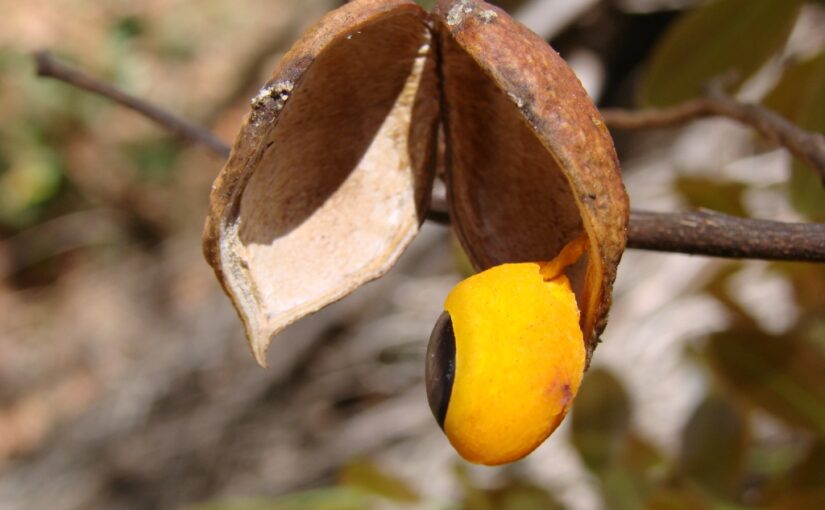Copaiba essential oil emerges from the heart of the Amazon rainforest, harvested from Copaifera officinalis, a towering tree in the Fabaceae family. Commonly known as copaiba, balsam copaiba, or Jesuit’s balsam, this species thrives in the lush canopies of Brazil, where over ninety percent of the world’s supply originates. Peru and Colombia contribute smaller but vital portions. The oil is gently steam-distilled from the tree’s oleoresin, or copaiba balsam, which is collected through sustainable tapping of mature trunks, a method that preserves the forest’s vitality. The result is a clear to pale yellow liquid with a viscous texture. Its aroma is balsamic and earthy, laced with sensual resinous notes, a hint of honey-like sweetness, and subtle turpentine undertones. As a base note, copaiba anchors blends with depth and warmth. Key constituents include beta-caryophyllene (up to fifty percent), alpha-humulene, bergamotene, bisabolene, cadinene, and copaene.
Historical and Cultural Significance
For centuries, indigenous communities in northeastern Brazil have turned to copaiba as a foundational element of traditional medicine. These ancient healers recognized its power to mend wounds, combat infections, and ease respiratory woes. Early European missionaries, dubbing it “Jesuit’s balsam,” adopted it for similar purposes, spreading its reputation beyond the rainforest. Copaiba’s versatility extended far beyond healing. Artisans used it as a fixative in perfumery, a durable varnish for woodwork, and even an alternative fuel source resembling diesel. The oil’s sweet, resinous fragrance evokes the humid mystery of the Amazon, symbolizing not just physical restoration but a profound connection to nature’s enduring wisdom.
Therapeutic Benefits
Copaiba essential oil stands out for its remarkable anti-inflammatory and healing capabilities. At its core, the oil reduces inflammation and alleviates pain, making it a go-to for arthritis sufferers, those with muscle aches, headaches, or abdominal cramps. Its antibacterial and antifungal properties actively fight infections, from urinary tract issues to athlete’s foot, nail fungus, and stubborn skin conditions. As an antiseptic and cicatrizant, copaiba promotes faster wound healing, minimizes scarring, and addresses concerns like warts and hemorrhoids.
Respiratory support is another strength. The oil acts as an expectorant, clearing congested airways, loosening phlegm, and aiding conditions such as bronchitis, tonsillitis, and sore throats. It bolsters the immune system as an immunostimulant, enhancing lymph circulation and helping the body eliminate pathogens more effectively. Digestive relief comes in the form of soothing stomachaches, leukorrhea, and general discomfort. Researchers are exploring its antitumoral potential, particularly through beta-caryophyllene, though it remains unproven as a cancer treatment. The high sesquiterpene content, especially beta-caryophyllene, fuels these anti-inflammatory and immune-boosting effects, positioning copaiba as a natural powerhouse for holistic health.
Aromatherapy Uses
Incorporating copaiba into daily routines is straightforward and rewarding. For diffusion, four drops of copaiba paired with two drops of eucalyptus in a one hundred milliliter water diffuser cleanses the air, eases respiratory congestion, and creates a grounding, serene space. Topical applications shine in targeted relief. Dilute five drops of copaiba with two drops of ginger in one ounce of carrier oil for a massage blend that tackles muscle pain, arthritis, or varicose veins. Apply directly to skin for fungal infections or wounds, always ensuring proper dilution.
Baths offer immersive benefits. Six drops each of copaiba and lavender, mixed with a dispersant in warm bathwater, can soothe urinary tract infections or relax tense muscles. Inhalation provides quick comfort; placing one or two drops on a tissue can calm sore throats, headaches, or breathing difficulties. Due to its rich aroma, use copaiba sparingly in diffusers, and always dilute for skin contact to maximize safety and efficacy.
Emotional and Energetic Effects
The balsamic, earthy scent of copaiba essential oil grounds and sensualizes the spirit. It fosters calm amid chaos, building emotional resilience and reducing stress. This oil is particularly supportive during meditation, where it promotes inner peace and soothes frazzled nerves. Linked to the root chakra, copaiba anchors users to the earth, encouraging a deeper connection to nature and self. It addresses stress, emotional fatigue, restlessness, and feelings of disconnection, inviting a sense of harmony and renewal.
Blending and Companion Oils
Copaiba’s resinous profile pairs beautifully with a range of oils. It blends seamlessly with angelica, cajeput, chamomile, clove, coriander, eucalyptus, geranium, ginger, hyssop, lavender, lemon, spikenard, vetiver, and other resinous varieties. These combinations enhance its anti-inflammatory and grounding qualities. For substitutes, frankincense or myrrh deliver similar resinous, healing effects, though they lack copaiba’s distinctive sweetness.
Safety and Precautions
Copaiba essential oil enjoys a strong safety record. It is generally nontoxic, non-irritating, and non-sensitizing, but a patch test is wise for sensitive skin. Dilute to one or two percent (six to twelve drops per one ounce of carrier oil) for topical use. The oil is safe for children and pregnant women when properly diluted, though consulting a healthcare provider for prolonged use is advisable. Store in a dark glass bottle in a cool, dark place, tightly capped, for a shelf life of four to six years. Reserve copaiba for external applications unless guided by a professional.
Copaiba’s Amazonian Embrace
Imagine the towering copaiba trees of the Amazon, their trunks tapped with care to release a golden balsam. This sustainable harvest echoes the wisdom of indigenous healers, who have long trusted copaiba to mend bodies and spirits. Today, the oil continues that legacy, easing pain, clearing airways, and fostering peace in modern lives.
Copaiba essential oil captures the essence of Amazonian groves in every pale yellow drop. Its balsamic, sensual scent delivers potent relief from inflammation and infections while grounding the emotions in resilience. Versatile and time-honored, copaiba invites users to connect with nature’s healing force, blending ancient tradition with everyday wellness for a balanced, vibrant life.
Image: João Medeiros.
